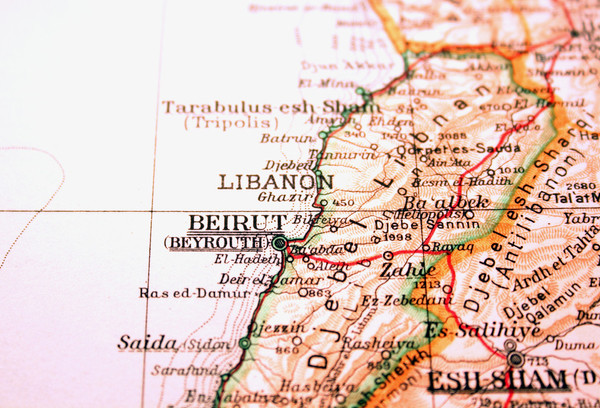
Lebanon’s deeply troubled wine sector
South Africa’s wine sector has rightly been the focus of much attention over the past weeks as export markets are urged to support its producers by encouraging consumers to buy their wines.
But another wine-producing country some 6,000 miles away is equally deserving of our attention. Lebanon is a country with a long history of winemaking, with a wine sector that has been flourishing over the last two decades.
As the creator of the first ever generic campaign for Lebanese wine, this tiny wine-producing country has always had a special place in my heart. I have watched with sadness and alarm as the country has descended from a ‘people’s revolution’ in October 2019 – which was full of hope for a future Lebanon free from political corruption - to a full blown financial crisis today. Add to this the catastrophic explosion in Beirut on Tuesday and Lebanon’s problems are even bigger than ever.
Up until this week, not much of Lebanon’s plight had made the headlines here in the UK. With an annual production of around only 10 million bottles, it might seem insignificant as a wine-producing country to the trade here. But ask anyone who has had the chance to taste the wines or been lucky enough to visit the country, and they’ll tell you that there is something especially captivating about it.
Lebanon’s own currency, the Lira, which has been artificially pegged to the US dollar for over 20 years, has lost around 80% of its value over the last few months. Lebanon imports around 90% of what it consumes, including – crucially for the wine industry, bottles, corks and equipment – pretty much everything apart from the grapes grown in its near-perfect terroir. All these imports need to be paid for in dollars. But wine is one of Lebanon’s only exports, and therefore of huge importance, especially at this time.
Speaking to Domaine des Tourelles winemaker Faouzi Issa last week, he explained: “The biggest problem for wine producers in this country is that we import all our materials, so this is having a massive impact on our costs. Our export channels are currently our lifeline.
“Our sales in the UK have remained stable throughout the pandemic and we have come up with new ways to generate additional volume. We are so grateful to have such a loyal base of customers here in the UK especially as we know they’ve also had a very tough time.”
Cash flow remains a huge problem, though. Dollars in banks (which represent around 80% of deposits) cannot be accessed, with monthly limits imposed on account holders, who can only withdraw money in Lebanese Lira. International bank transfers have been banned since October to prevent capital flight. Consumer buying power has plummeted, but costs are spiraling as Lebanon relies on many imported goods. So now more than ever, fresh dollars generated by export sales are crucial to Lebanon.
Muriel Chatel of Borough Wines, which has long been a supporter of Lebanese wines, says: “Since the pandemic we’ve seen that people really understand that what is happening the other side of the world is also affecting them, but they also understand that they can do something to help. Customers are more willing to support others in need via their buying power, and we are definitely going to get behind Lebanese wines to generate as much awareness as possible. It is after all often the stories behind a wine that sells it.”
Emma Dawson MW, senior wine buyer at Berkmann Wine Cellars (importer of Chateau Ksara) adds: “It is devastating to see what has happened to Lebanon right now, especially on top of the already difficult conditions the country is living through. We are working hard to do what we can to drive currency back into the country and are already planning a charity virtual wine tasting to support the current crisis.”
All this is set to get much worse over the coming months as the country struggles to deal with the damage wreaked by the Beirut explosion, the resulting casualties and the rising tide of Covid-19 cases in the country. Lebanon’s already creaking infrastructure is now totally overloaded and rebuilding its capital city is going to be long and arduous.
With the harvest due to start next week, more challenges lie ahead for the producers.
Faouzi tells me: “I’m working 24/7 to make sure the harvest can happen safely. One thing we do have is an abundant and willing workforce, but with the challenges of everything that is happening, and the virus on top, we have limitations. But we will make it happen. This crisis will only make us stronger.”
The Lebanese have a reputation for being resilient and resourceful. But it’s clear that they are going to need more than just that to come back from this current crisis. The wine industry no longer has a generic body to bang the drum for its wines abroad, but it’s important that Lebanon continues to remain in people’s hearts and minds, and the UK trade puts some focus on the country’s most important export.
If you stock a Lebanese wine, please encourage your customers to try one. If you don’t, maybe now is the time to add one to your list.
#DrinkLebanese
Donations to Lebanese Red Cross can be made here.
Madeleine Waters runs co.co PR, a specialist food & drink communications consultancy. She founded and ran the generic campaign for Wines of Lebanon from 2010-14.




